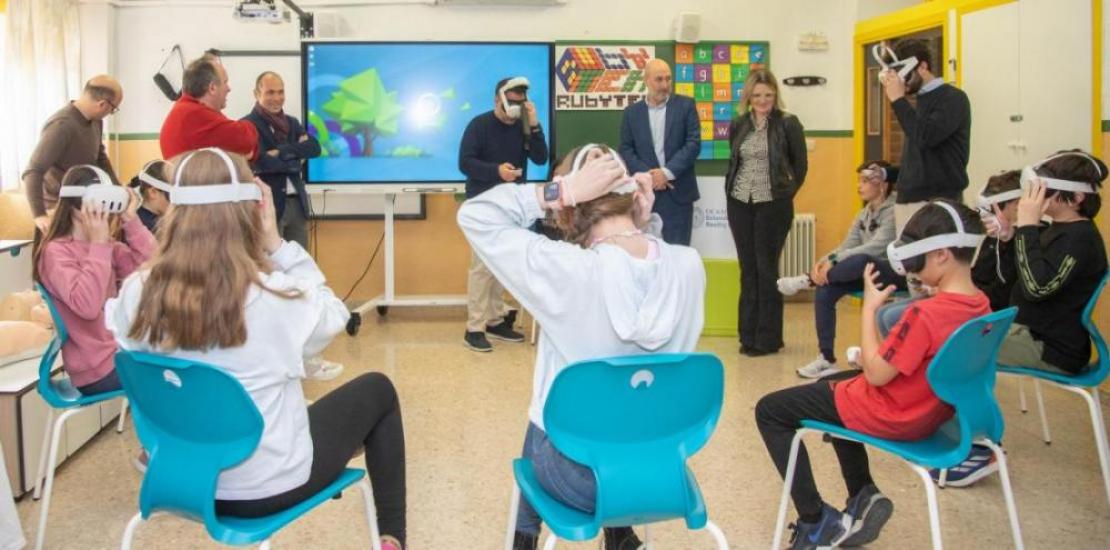A Video by UCAM and Fundación Mapfre Trains Schoolchildren in Cardiopulmonary Resuscitation
The educational programme ‘Learning together to save lives’ will incorporate these Virtual Reality resources which will be accessible to all schools in the Region of Murcia for free
Sudden cardiac death is the third leading cause of death in Europe. In Spain, only in 4 out of 10 cases of out-of-hospital cardiac arrest do bystanders initiate resuscitation techniques and the average survival rate with a good neurological state is 9.8%. The European Resuscitation Council recommends starting resuscitation and first aid training as soon as a child enters school. The aim of the European Council is to develop ‘Life Savers’, communities prepared to respond to cardiac arrest.
The students of the Federico Arce Public School in Murcia have starred in the recording of a Virtual Reality video in which the participant is in an emergency situation, as a bystander, and has to make decisions to correctly resolve the medical emergency. This video, which involves innovative teaching techniques, will be incorporated as a resource in the educational programme ‘Learning together to save lives’ by Fundación MAPFRE. This programme and its resources are free and are developed in collaboration with the Spanish Council of Cardiopulmonary Resuscitation. Professionals from the 061 Emergency Department of the Region of Murcia and school nurses within the Community Health Care Programme for Schools (PACES, for its Spanish acronym) of Murcia also participated in the scientific-technical guidance.
This Virtual Reality experience has been supported by an ‘Ignacio H. de Larramendi’ research grant, which Fundación MAPFRE awarded in 2022 to Dr. Manuel Pardo Ríos of UCAM for the creation of the Teaching Skills for Health Emergencies Programme. Patients who have survived cardiac arrest have also participated in the video.
The project involved the participation of patients, schoolchildren, teachers, school nurses, health staff, an ambulance and resources of the 061 management team of the Region of Murcia.




